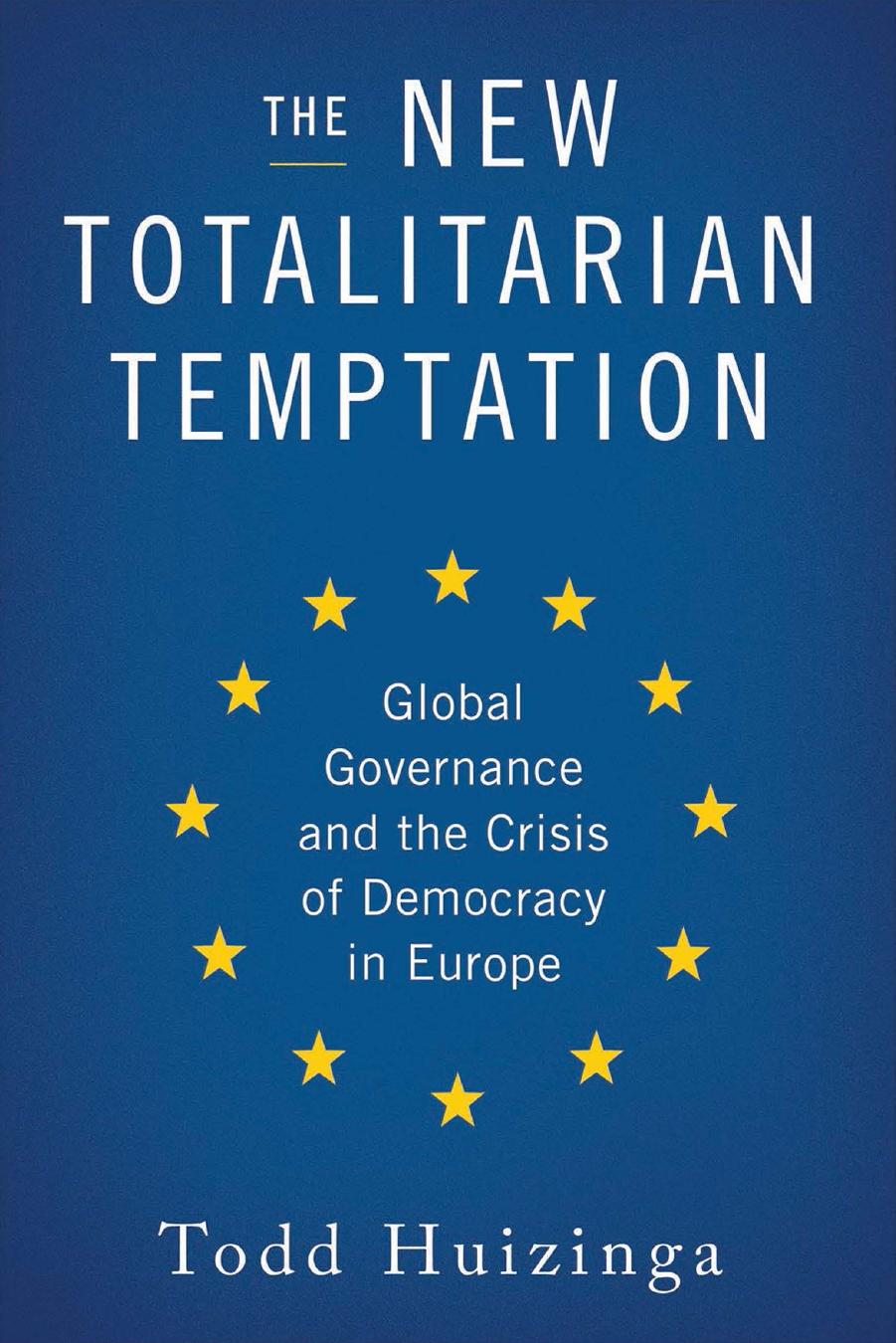The New Totalitarian Temptation: Global Governance and the Crisis of Democracy in Europe by Todd Huizinga

Author:Todd Huizinga [Huizinga, Todd]
Language: eng
Format: epub, pdf
Tags: Politics & Social Sciences, Politics & Government, Ideologies & Doctrines, Democracy, International & World Politics, European
ISBN: 9781594037900
Amazon: B01B11TQO2
Publisher: Encounter Books
Published: 2016-02-15T23:00:00+00:00
CHAPTER 15:
BINDING THE LEVIATHAN IN ITS WAR ON TERROR
The ICC starkly illustrates how the American commitment to democratic sovereignty and the EU’s global governance ideology put the transatlantic allies on a collision course. But the ICC debate, as serious as it is, could conceivably be firewalled off from the overall relationship. That is not true of this century’s primary example of the ill effect of the belief in global governance on the U.S.-EU alliance: the U.S. war on terror since the attacks of September 11, 2001.
To be sure, here also we are talking of a difference that is often more in principle than in action. The United States and the EU are allies in the war on terror in many ways, and the UK – not coincidentally the most sovereigntist of the EU member states – has been America’s most important ally in this struggle. In the immediate aftermath of September 11, everyone stood by the United States. On September 13, 2001, the French left-wing newspaper Le Monde, not generally known for its pro-Americanism, proclaimed, “Nous sommes tous Américains” – “We Are All Americans.”1 In the days and weeks following the attacks, as the U.S. State Department noted, “many European countries acted quickly to share law enforcement and intelligence information, conduct investigations into the attacks, and strengthen laws to aid the fight against terrorism.”2 The EU promptly took measures enhancing its ability to fight terrorism, such as freezing terrorist assets and combating money laundering.3 Several EU member states contributed troops to the fight against the Taliban and al-Qaida in Afghanistan. A good number of EU member states even supported the U.S. invasion of Iraq.
That said, however, the EU’s adherence to the ideology of global governance has severely damaged the efficacy of the transatlantic alliance in the most important foreign policy priority of the United States in the twenty-first century – the global war on terror. Even amidst the wave of sympathy for the United States in Europe after September 11, the transatlantic difference in worldview started to show quickly.
SEPTEMBER 11 AND EUROPEAN INTEGRATION
The Belgian presidency of the EU, as mentioned in Chapter 7, used the terrorist attacks as a pretext to promote further supranational European integration, including the idea of a European Constitution. EU leaders held an emergency summit on September 21, and in explaining their plans to support the United States and intensify the fight against terrorism, they called for “the broadest possible global coalition against terrorism, under United Nations aegis.”4
One of the earliest policy measures announced to combat terrorism was the introduction of a European arrest warrant, something that integrationists had long been touting. The argument was that this would allow more effective EU-wide cooperation in apprehending terrorist suspects. What it also did, though, was make it possible for anyone to be arrested in any EU member state at the request of any other EU member state, and then to be transferred to the requesting state without going through traditional extradition procedures. Essentially, the European arrest warrant represents
Download
The New Totalitarian Temptation: Global Governance and the Crisis of Democracy in Europe by Todd Huizinga.pdf
This site does not store any files on its server. We only index and link to content provided by other sites. Please contact the content providers to delete copyright contents if any and email us, we'll remove relevant links or contents immediately.
| Arms Control | Diplomacy |
| Security | Trades & Tariffs |
| Treaties | African |
| Asian | Australian & Oceanian |
| Canadian | Caribbean & Latin American |
| European | Middle Eastern |
| Russian & Former Soviet Union |
The Secret History by Donna Tartt(16627)
The Social Justice Warrior Handbook by Lisa De Pasquale(11489)
Thirteen Reasons Why by Jay Asher(7788)
This Is How You Lose Her by Junot Diaz(5774)
Weapons of Math Destruction by Cathy O'Neil(5037)
Zero to One by Peter Thiel(4824)
The Myth of the Strong Leader by Archie Brown(4789)
Promise Me, Dad by Joe Biden(4449)
Beartown by Fredrik Backman(4419)
Stone's Rules by Roger Stone(4416)
How Democracies Die by Steven Levitsky & Daniel Ziblatt(4399)
The Fire Next Time by James Baldwin(4343)
100 Deadly Skills by Clint Emerson(4079)
A Higher Loyalty: Truth, Lies, and Leadership by James Comey(4033)
Rise and Kill First by Ronen Bergman(4012)
The David Icke Guide to the Global Conspiracy (and how to end it) by David Icke(3883)
The Farm by Tom Rob Smith(3872)
Secrecy World by Jake Bernstein(3783)
The Doomsday Machine by Daniel Ellsberg(3731)
